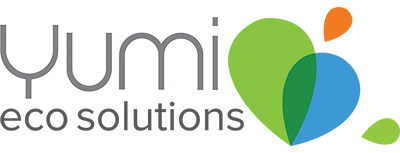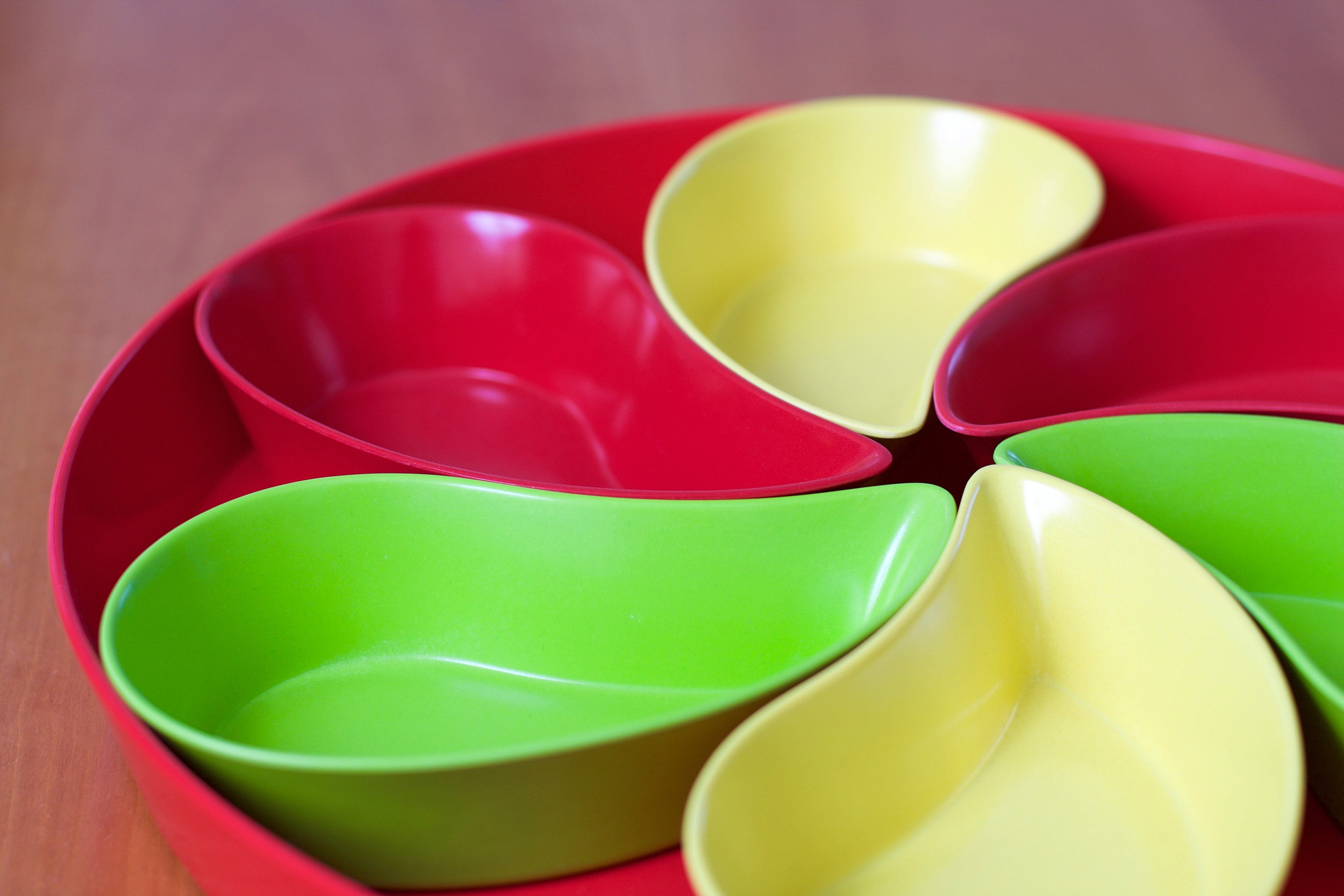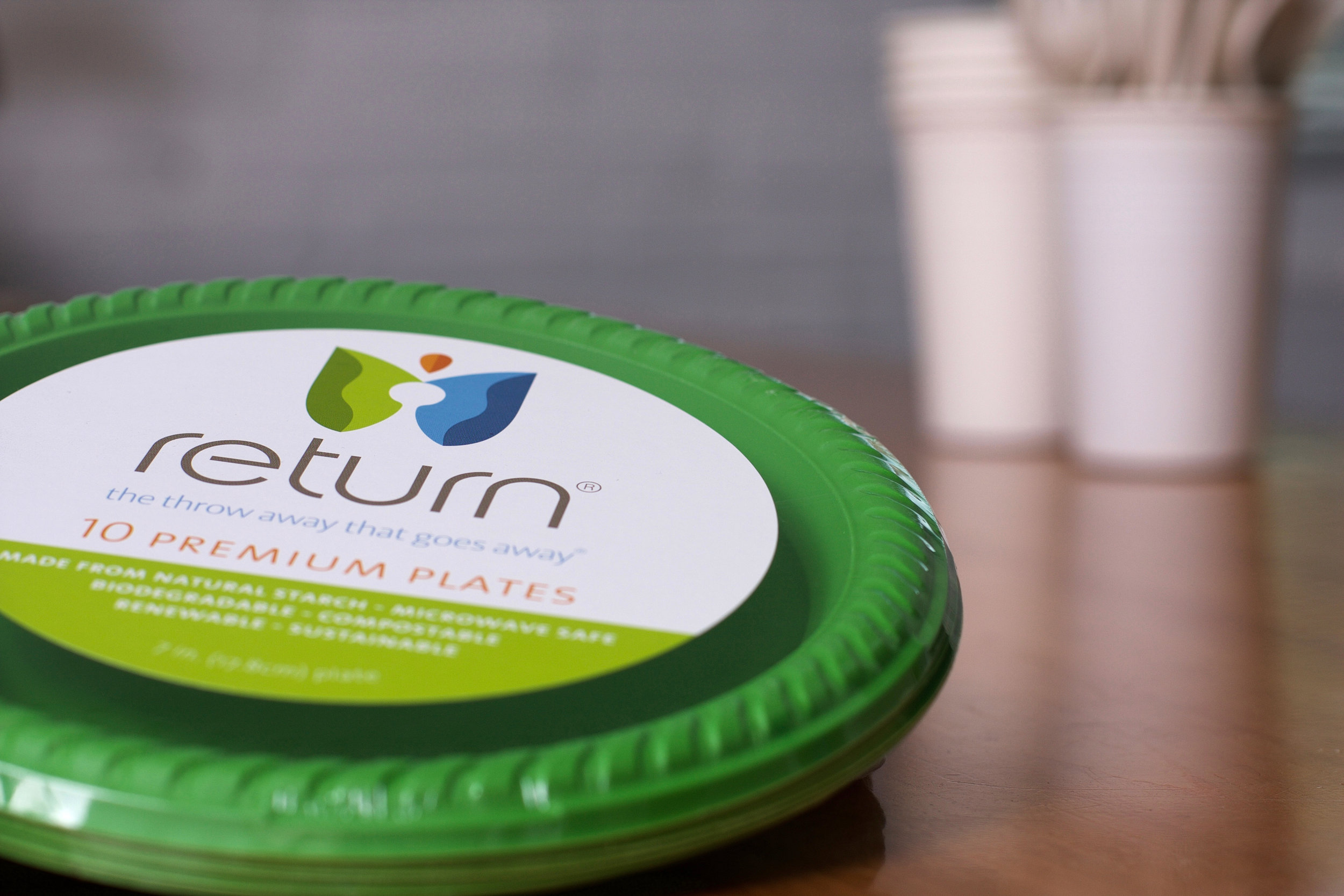The following article is reprinted from the Summer 2017 issue of Edible Nutmeg.
If The Graduate were to be remade for the twenty-first century, one of its iconic scenes might go something like this: “I just want to say one word to you—just one word: biomaterials. There’s a great future in biomaterials; will you think about it?”
For Virginia and Albert P’an, exploring possibilities enabled by biomaterials is now a seven-year-old journey. Their company, Yumi Ecosolutions, is on a mission to create a healthier and more sustainable world for future generations by replacing plastic with natural materials.
“The biomaterials industry today is where the plastic industry was in the '60s,” says Virginia. “We’re at the very beginning of this movement, and there are so many exciting developments coming down the pike.”
Yumi EcoSolutions designs and markets sustainable plateware products that are much more than just an environmentally friendly alternative to plastic. They are beautiful, elegant, and durable pieces worthy of being showcased in any kitchen or at any home party or summer picnic.
Yumi first entered the market with their line of Return branded plates, bowls, cups, and cutlery. Made with starch derived from corn, all Return products are biodegradable, compostable, renewable, and sustainably produced. Return plateware can be found in over 3,500 stores nationwide, with Kroger being a recent example of a large retailer to take in the brand.
The company’s robust innovation plans include leveraging similar technologies to those used in Return. “Paper plateware is somewhat limited from a design perspective, because the primary manufacturing method relies upon a paper-stamping technology,” explains Virginia. “Our products use molds, similar to how plastics are made, which allows us to develop an array of different products while incorporating more interesting and complex design aesthetics.”
Yumi also features a line of artful bamboo products, which include an assortment of bowls, trays, serving dishes, and even ice-cream scoopers. Yumi produces these products with repurposed bamboo; leftover scraps from the manufacture of furniture, flooring, and cutting boards, once destined to be dumped into landfills, are transformed into useful goods.
“All of the repurposed material is ground into a fine powder, mixed with food-grade coloring, then compressed in a mold using high pressure and heat,” explains Virginia. The resulting creations are durable, non-toxic, melamine free, and absolutely gorgeous.
“Our bamboo products were featured in the Hall of Global Innovation at a recent International Housewares Association show,” Virginia states. “Out of 5,000 companies, we were one of 20 honored with that distinction.”
The P’ans’ attention to detail in their product design is readily apparent. Yumi’s matte-finish products have a unique tactile texture that’s a function of adding rice husk, another reclaimed raw material. The polished products, with their vibrant colors, shine brightly and look as if they have an extra coating of high-gloss varnish. “We want our version of eco-friendly to be joyful, colorful, and fun, not brown-paper-bag color,” states Virginia.
Yumi’s version of fun is on display in their Amoré 6-Piece Sculpture Stackable Bowl Set, which invites consumers to arrange the bowls in various configurations, or the Natural Bamboo Wine Party plates that combine a sturdy, colorful plate with a cutout that functions as a parking place for wine glasses.
Before becoming full-fledged entrepreneurs, Virginia and Albert enjoyed successful careers in finance and engineering. Virginia has been a pioneer throughout her career in finance, having held executive-level positions at American Express and the Federal Reserve. Albert’s background in engineering and finance, along with a Harvard MBA, complements Virginia’s skills. He oversees the company’s finance, supply chain, logistics, and pricing strategy.
Both are child immigrants from China and feel grateful for the opportunity and success afforded to them as a result of living in the United States. “I’ve been very, very fortunate, and I want to give back,” says Virginia. “Once Albert and I became empty nesters, we felt it was a good time to pursue something that would allow us to make a difference.”
“Virginia had a vision, and I shared it, as well,” adds Albert. “Taking steps to correct society’s course with respect to the environment is something we feel very strongly about. We’re trying to do something about the serious issues we all face.”
The couple is intent on reversing troubling trends associated with plastic consumption across the world. According to Eco Watch, 50% of all plastic products are used just once and thrown away. The amount of plastic discarded as trash each year is enough to circle the Earth four times.
The World Economic Forum recently warned that, by 2050, the world’s oceans will contain more plastic than fish in terms of weight. Sadly, despite the increase in recycling programs, only 14% of plastic packaging is collected for recycling, much less than the reuse rates of other materials, such as paper or iron and steel. The P’ans believe that the best solution to address these issues is to reduce the amount of plastic that is used in products and packaging in the first place, and they are up for the challenge to chisel away at the $350 billion plastic industry.
“We never retired, because we don’t know how to spell the word,” jokes Albert. “I don’t think I’d replace this experience for anything else. It’s been incredibly rewarding.”
For a couple who have accomplished so much in their careers, the P’ans seem quite content learning the ins and outs of a whole new industry along with adjusting to an entirely new approach to getting work done. When asked to share some of their accumulated entrepreneurial wisdom to date, they noted two things: new entrepreneurs should be ready to accept that things will take longer than they expect or want, and that entrepreneurs must possess a personality that can deal with uncertainty, because every day presents new hurdles.
“I love what I’m doing, because I’m learning so much and using the gray matter between my two ears,” says Virginia. “I feel invigorated, because we’re on the cusp of so many breakthroughs.”
Global production and consumption of plastics have increased significantly since The Graduate predicted the industry’s “great future.” Let’s hope, 50 years from now, we look back and appreciate the forward thinking of companies like Yumi EcoSolutions, who realized a vision and took action to create a more sustainable future.




